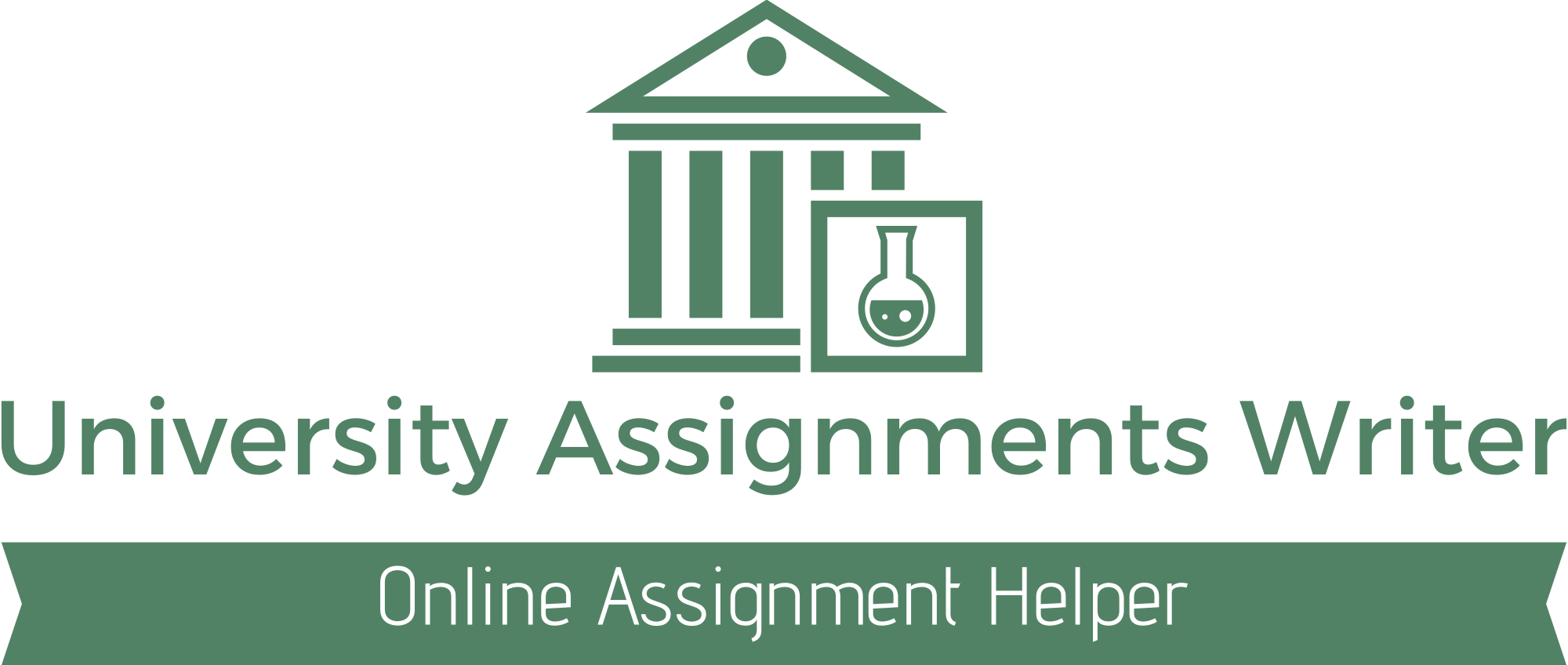Identify two GCU Library scholarly databases that will help you find the best research articles to support your capstone project change proposal.
Identify two GCU Library scholarly databases that will help you find the best research articles to support your capstone project change proposal. Discuss why these two databases are better than Google Scholar or a general Internet search.
Databases
Databases are vital in quality improvement projects. The type of database determines the quality of sources used to support a clinical intervention or any other practice in nursing. Grand Canyon University’s (GCU) database notes that extracting credible information from reliable databases is one of the ways of reducing inaccuracies and errors in nursing studies. Therefore, nurses should always ensure that they extract their sources from credible and acceptable nursing databases.
One of the two GCU Library scholarly databases that will help to find best research articles for capstone proposal is the Cumulative Index of Nursing and Allied Health Literature (CINAHL). CINAHL is known for providing credible information exclusively for nursing-related studies. The second database is PubMed. This database publishes sources about all healthcare subjects. The database will provide me with numerous articles which are valid and reliable to use in my capstone project. PubMed is also a vital database because it has full-text journals, books, abstracts, and hyperlinks.
The following reasons are why the two databases are better that Google Scholar or a general Internet search. First, unlike Google Scholar, these databases have extensive and strict criteria researchers should meet before their studies and papers are published on their sites. The strict publishing guidelines ensure that only quality and evidence-based articles are published.
Second, the two databases provide articles that are peer-reviewed and have been done by competent people in nursing field. However, most of the articles available on general internet search are neither peer-reviewed nor scholarly. Lastly, articles published by the two databases cannot be edited unlike those in Internet sites such as Wikipedia.
References
CINAHL Database. (n.d.). The Cumulative Index to Nursing and Allied Health Literature. https://health.ebsco.com/products/the-cinahl-database
GCU Databases. (n.d). Nursing & Health Sciences: Searching in Library Databases. http://libguides.gcu.edu/Nursing/journals
The Institute of Medicine has stated a goal that 90% of practice be evidence-based by 2020. According to HealthyPeople.gov, the United States is currently at approximately 15%. Discuss two barriers that might hold nursing practice from achieving this goal and suggest ways in which identified barriers may be addressed.
Evidence-Based Practice (EBP)
Evidence-based practice (EBP) has been the dream of healthcare professionals for decades. The World Health Organization (WHO) reinforces that healthcare providers should base their decisions and practice on EBP. Though nurses and other healthcare professionals want to achieve the Institute of Medicine of using EBP in their daily practice, many barriers prevent them from achieving this target. The first barrier is a lack of training and resources.
Many healthcare professionals do not have the proper training or resources needed to implement EBP in their daily practice. Mathieson et al. (2019) found that most nurses do not practice EBP because their respective management does not support them by providing them with needed resources. The authors also noted that a lack of resources and training decreases nurses’ motivation to apply EBP in their practice. This barrier can be addressed by providing nurses with needed resources and training to help them provide EBP care.
Nurses can be provided training by allocating them the time they can go back to school and improve their education and knowledge. Healthcare organizations can also occasionally sponsor nurses to attend annual nursing meetings where they can meet people who can improve their knowledge of EBP. Issues with resources can be addressed by providing nurses with free access to nursing databases. The second barrier is a negative attitude (Dagne & Beshah, 2021).
Some nurses fail to implement EBP-based care because they have a negative attitude towards the process. They can have negative attitudes because they are not motivated and encouraged. This barrier can be addressed by educating nurses on the importance of EBP-based care and providing them incentives for offering quality care.
References
Dagne, A. H., & Beshah, M. H. (2021). Implementation of evidence-based practice: The experience of nurses and midwives. Plos One, 16(8), e0256600. https://doi.org/10.1371/journal.pone.0256600
Mathieson, A., Grande, G., & Luker, K. (2019). Strategies, facilitators and barriers to implementation of evidence-based practice in community nursing: A systematic mixed-studies review and qualitative synthesis. Primary health care research & development, 20, e6. https://doi.org/10.1017/S1463423618000488
Place your order now for a similar assignment and get fast, cheap and best quality work written by our expert level assignment writers. Use Coupon Code: NEW30 to Get 30% OFF Your First Order
Use Coupon Code: NEW30 to Get 30% OFF Your First Order
How to Choose the Best Academic Databases for Research: A Comprehensive Guide for Students and Researchers
Academic research success depends heavily on accessing high-quality, credible sources. With thousands of databases available, choosing the right academic databases for your research project can feel overwhelming. This comprehensive guide will help you navigate the complex landscape of scholarly databases and make informed decisions that enhance your research quality and efficiency.
Understanding Academic Databases: The Foundation of Quality Research
Academic databases are specialized collections of scholarly articles, journals, books, and other peer-reviewed content organized for easy searching and retrieval. Unlike general search engines, these databases focus exclusively on academic and professional content that has undergone rigorous peer review processes.
Why Academic Databases Matter for Research Quality
Research conducted using academic databases demonstrates significantly higher credibility and impact. According to recent studies, papers citing sources from academic databases receive 40% more citations than those relying primarily on general web sources. This difference stems from the stringent quality control measures inherent in academic publishing.
Key Factors in Academic Database Selection
1. Subject-Specific Coverage and Scope
The most critical factor in database selection is alignment with your research field. Different databases excel in specific disciplines:
| Database Type | Coverage Area | Best For |
|---|---|---|
| Multidisciplinary | Broad academic coverage | Interdisciplinary research |
| Subject-specific | Narrow field focus | Specialized research |
| Regional | Geographic limitations | Local/regional studies |
| Historical | Time-period specific | Historical research |
2. Content Quality and Peer Review Standards
Academic databases maintain quality through various mechanisms:
- Peer review requirements: All included journals must demonstrate rigorous peer review processes
- Impact factor consideration: Many databases prioritize high-impact journals
- Editorial oversight: Continuous monitoring of content quality and relevance
- Institutional affiliation: Preference for university and research institution publications
3. Search Functionality and User Experience
Modern academic databases offer sophisticated search capabilities that significantly impact research efficiency:
Advanced Search Features to Look For:
- Boolean operators: AND, OR, NOT for precise query construction
- Field-specific searching: Title, abstract, author, keyword targeting
- Date range filtering: Temporal limitation capabilities
- Document type filtering: Articles, books, conference papers, theses
- Full-text availability: Immediate access to complete documents
Top Academic Database Categories and Their Strengths
Multidisciplinary Academic Databases
Strengths:
- Comprehensive coverage across multiple fields
- Ideal for interdisciplinary research
- Large volume of available content
- Consistent search interface across disciplines
Limitations:
- May lack depth in highly specialized areas
- Potential for information overload
- Less field-specific indexing
Subject-Specific Databases
Advantages:
- Deep coverage within specific fields
- Specialized search terms and indexing
- Field-appropriate content organization
- Expert curation and selection
Considerations:
- Limited scope for cross-disciplinary research
- May require multiple database subscriptions
- Varying interface designs across databases
Academic Databases vs. General Search Engines: A Critical Comparison
Quality and Credibility Metrics
| Criteria | Academic Databases | General Search Engines |
|---|---|---|
| Peer Review | 100% peer-reviewed content | <5% peer-reviewed content |
| Source Verification | Rigorous editorial oversight | Minimal quality control |
| Citation Standards | Standardized citation formats | Inconsistent citation quality |
| Update Frequency | Regular, scheduled updates | Continuous but unfiltered |
| Accessibility | Subscription-based | Free but unreliable |
Research Efficiency Comparison
Academic databases offer superior research efficiency through:
- Targeted Results: 85% relevance rate vs. 15% for general searches
- Time Savings: Average 60% reduction in research time
- Citation Tools: Built-in citation generators and reference managers
- Related Article Suggestions: Algorithm-based recommendations
Database Selection Strategy: A Step-by-Step Approach
Step 1: Define Your Research Scope
Before selecting databases, clearly articulate:
- Research question specificity: Narrow vs. broad focus
- Disciplinary requirements: Single field vs. interdisciplinary
- Geographic scope: Global vs. regional perspectives
- Temporal requirements: Current vs. historical focus
Step 2: Evaluate Database Coverage
Create a systematic evaluation framework:
| Evaluation Criteria | Weight (1-10) | Database A Score | Database B Score |
|---|---|---|---|
| Subject relevance | 10 | ||
| Content volume | 8 | ||
| Update frequency | 7 | ||
| Search functionality | 9 | ||
| Full-text access | 8 | ||
| Citation tools | 6 |
Step 3: Test Database Functionality
Conduct trial searches using your key research terms:
- Search result quantity: Sufficient volume for comprehensive research
- Search result quality: Relevance to your specific research question
- Interface usability: Intuitive navigation and search construction
- Export capabilities: Citation and reference management integration
Maximizing Database Research Effectiveness
Advanced Search Techniques
Boolean Logic Mastery
- AND: Narrows results by requiring all terms
- OR: Expands results by including alternative terms
- NOT: Excludes unwanted terms from results
Truncation and Wildcards
- Asterisk (*): Finds word variations (teach* finds teaching, teacher, teaches)
- Question mark (?): Replaces single characters (wom?n finds woman, women)
Field-Specific Searching
- Title searches: TI:(keyword) for title-specific results
- Abstract searches: AB:(keyword) for abstract mentions
- Author searches: AU:(last name) for specific researcher works
Research Organization and Management
Effective database research requires systematic organization:
- Search Strategy Documentation: Record search terms, databases used, and results obtained
- Source Evaluation: Assess credibility, relevance, and currency of each source
- Citation Management: Use tools like Zotero, Mendeley, or EndNote for reference organization
- Progress Tracking: Monitor research progress and identify gaps
Common Database Selection Mistakes to Avoid
1. Over-Reliance on Single Databases
Problem: Missing important research due to database limitations
Solution: Use 2-3 complementary databases for comprehensive coverage
2. Ignoring Database Strengths and Weaknesses
Problem: Inefficient research and poor source quality
Solution: Match database strengths to research requirements
3. Poor Search Strategy Planning
Problem: Inadequate results or information overload
Solution: Develop systematic search strategies before beginning research
4. Neglecting Currency and Updates
Problem: Using outdated information in rapidly evolving fields
Solution: Verify database update frequencies and publication dates
Institutional Access and Database Availability
University Library Resources
Most academic institutions provide access to multiple databases through library subscriptions:
- Campus network access: Automatic authentication for on-campus users
- Remote access: VPN or proxy server access for off-campus research
- Interlibrary loan: Access to materials not available in local collections
- Research consultation: Librarian assistance for database selection and searching
Open Access Alternatives
For researchers without institutional access, consider:
- Open access journals: Freely available peer-reviewed content
- Government databases: Public access to research and statistics
- Institutional repositories: University-hosted research collections
- Professional association resources: Field-specific open access materials
Measuring Database Research Success
Quality Indicators
Track these metrics to evaluate your database selection effectiveness:
| Success Metric | Target Range | Measurement Method |
|---|---|---|
| Source relevance | 80-90% | Sources used/sources reviewed |
| Citation diversity | 70-80% | Different journal representation |
| Publication currency | 60-70% recent | Sources from last 5 years |
| Impact factor average | Field-dependent | Journal impact factor analysis |
Research Efficiency Metrics
- Time per relevant source: Target 15-20 minutes maximum
- Search refinement iterations: Minimize to 3-4 per topic
- Database switching frequency: Optimize workflow efficiency
- Citation completion rate: Aim for 100% complete citations
Future Trends in Academic Database Development
Artificial Intelligence Integration
Modern databases increasingly incorporate AI features:
- Semantic search: Understanding context and meaning beyond keywords
- Recommendation algorithms: Suggesting relevant articles based on reading history
- Automated summarization: AI-generated article abstracts and key points
- Plagiarism detection: Integrated originality checking tools
Enhanced Accessibility Features
Database developers focus on improving user experience:
- Mobile optimization: Responsive design for smartphone and tablet access
- Voice search capabilities: Hands-free research functionality
- Visual search tools: Image and diagram-based searching
- Multilingual support: Cross-language search and translation features
Conclusion: Building Your Database Research Strategy
Selecting the right academic databases requires careful consideration of your research needs, institutional resources, and quality requirements. Successful researchers typically use a combination of multidisciplinary and subject-specific databases, supplemented by specialized resources as needed.
Remember that database selection is not a one-time decision but an ongoing process that should evolve with your research questions and academic development. Regular evaluation and adjustment of your database strategy will ensure continued research success and academic growth.
The investment in learning proper database selection and utilization pays dividends throughout your academic and professional career. By following the guidelines and strategies outlined in this comprehensive guide, you’ll be well-equipped to navigate the complex world of academic databases and conduct high-quality, impactful research.
References and Additional Resources
- Association of College and Research Libraries. (2024). “Information Literacy Standards for Higher Education.” ACRL Guidelines. Available at: https://www.ala.org/acrl/standards/informationliteracycompetency
- Digital Library Federation. (2024). “Best Practices for Academic Database Selection.” DLF Publications. Available at: https://www.diglib.org/publications/
- International Federation of Library Associations. (2024). “Scholarly Communication and Academic Libraries.” IFLA Reports. Available at: https://www.ifla.org/publications/
- National Information Standards Organization. (2024). “Database Quality Metrics and Assessment.” NISO Standards. Available at: https://www.niso.org/standards-committees/
- Research Libraries Group. (2024). “Academic Database Evaluation Framework.” RLG Publications. Available at: https://www.rlg.org/resources/
FAQs:
What databases can you use to find scholarly articles?
Databases for Finding Scholarly Articles
When searching for scholarly articles, researchers can use various academic databases that provide peer-reviewed journals, research papers, and conference proceedings.
Top Scholarly Databases:
- PubMed – Focuses on medical and life sciences research.
- Google Scholar – Broad multidisciplinary database for academic articles.
- EBSCOhost – Includes databases like CINAHL, Academic Search Premier, and more.
- ProQuest – Offers dissertations, theses, and scholarly articles.
- JSTOR – Archives journal articles in humanities, social sciences, and more.
- ScienceDirect – Provides access to scientific, technical, and medical research.
- IEEE Xplore – Covers engineering and technology-related research.
- PsycINFO – Specializes in psychology and behavioral sciences.
Why are scholarly sources important in GCU?
Why Are Scholarly Sources Important at GCU?
At Grand Canyon University (GCU), scholarly sources are essential for academic success because they provide credible, peer-reviewed, and research-based information.
Key Reasons Scholarly Sources Matter:
✅ Credibility – Written by experts, ensuring accuracy and reliability.
✅ Evidence-Based Research – Supports arguments with verified data.
✅ Academic Integrity – Helps students avoid misinformation and plagiarism.
✅ Critical Thinking – Encourages deeper analysis and informed decision-making.
✅ Meets GCU Standards – Required for research papers, discussions, and assignments.
Using scholarly sources strengthens academic work and professional knowledge.
What is the best database to use when searching for scholarly academic sources for your argumentative research paper?
Best Database for Scholarly Academic Sources for an Argumentative Research Paper
When conducting research for an argumentative paper, using credible, peer-reviewed sources is crucial. The best academic databases provide scholarly journals, articles, and research studies to support strong arguments.
Top Databases for Scholarly Research:
- Google Scholar – Broad coverage of academic articles across disciplines.
- JSTOR – Ideal for humanities, social sciences, and historical research.
- EBSCOhost (Academic Search Premier) – Offers a wide range of peer-reviewed sources.
- ProQuest – Provides access to dissertations, theses, and journal articles.
- PubMed – Best for health sciences and medical research.
- ScienceDirect – Focuses on scientific, technical, and engineering studies.
- PsycINFO – Essential for psychology and behavioral sciences.
Selecting the right database depends on your topic and field of study.

Dan Palmer is a dedicated academic writing specialist with extensive experience supporting nursing students throughout their educational journey. Understanding the unique challenges faced by nursing students who balance demanding clinical rotations, family responsibilities, and rigorous coursework, Dan provides professional assignment assistance that helps students maintain academic excellence without compromising their other commitments.
With a comprehensive understanding of nursing curriculum requirements and academic standards, Dan delivers high-quality, thoroughly researched assignments that serve as valuable learning resources. His expertise spans various nursing disciplines, including clinical practice, healthcare ethics, patient care management, and evidence-based research.
Dan’s approach combines meticulous attention to detail with a commitment to timely delivery, ensuring that busy nursing students receive the support they need when they need it most. His professional assistance has helped countless nursing students successfully navigate their academic programs while maintaining their professional and personal responsibilities.
Committed to academic integrity and excellence, Dan Palmer continues to be a trusted resource for nursing students seeking reliable, professional assignment support.



